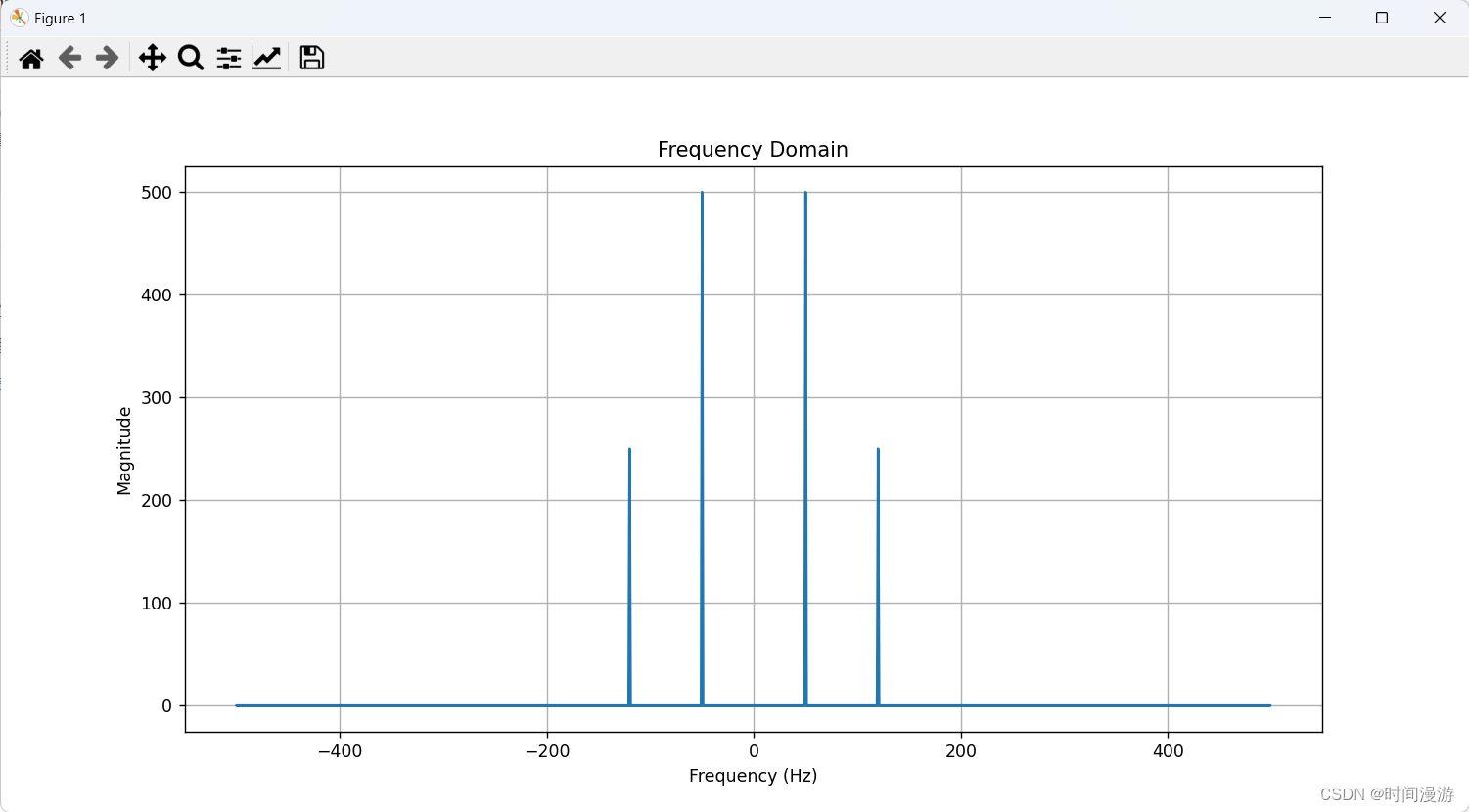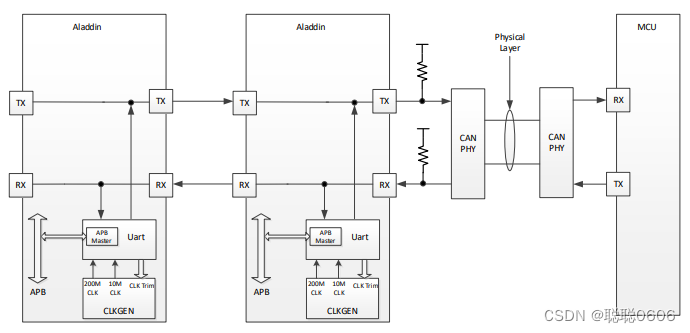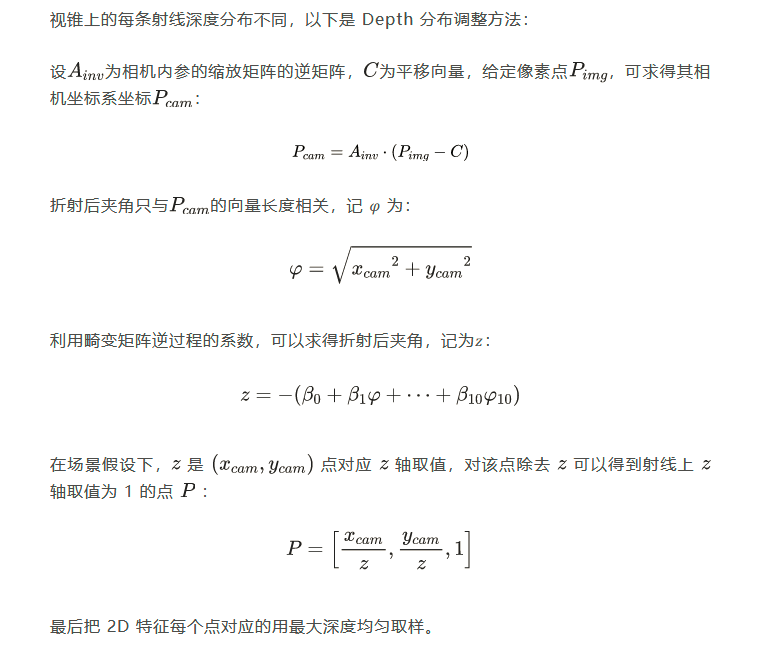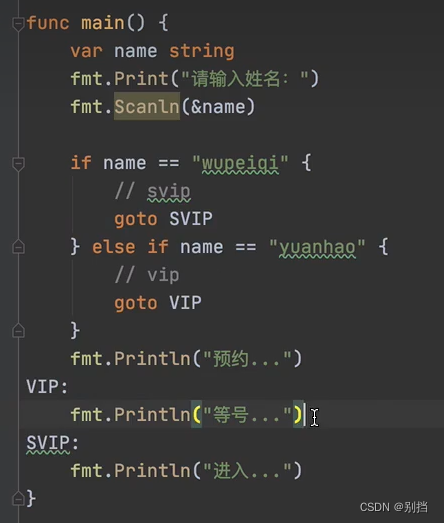WebRTC(Web Real-Time Communication) 是一个开源项目,提供实时通信能力,广泛应用于视频、音频和数据传输。在WebRTC的实现中,sigslot库用于信号和槽机制,以实现事件驱动的编程模型。
WebRTC的sigslot部分主要实现了信号和槽的机制,用于简化组件之间的通信和事件处理。WebRTC使用sigslot库来处理事件,例如网络状态变化、媒体流事件等。
我们可以利用其sigslot部分编写信号槽.
sigslot文档
sigslot源码
sigslot.h
/*
最原始的sigslot.h已经不在适合如今的C++标准,直接使用webrtc的sigslot.h即可
*/
// sigslot.h: Signal/Slot classes
//
// Written by Sarah Thompson (sarah@telergy.com) 2002.
//
// License: Public domain. You are free to use this code however you like, with
// the proviso that the author takes on no responsibility or liability for any
// use.
//
// QUICK DOCUMENTATION
//
// (see also the full documentation at http://sigslot.sourceforge.net/)
//
// #define switches
// SIGSLOT_PURE_ISO:
// Define this to force ISO C++ compliance. This also disables all of
// the thread safety support on platforms where it is available.
//
// SIGSLOT_USE_POSIX_THREADS:
// Force use of Posix threads when using a C++ compiler other than gcc
// on a platform that supports Posix threads. (When using gcc, this is
// the default - use SIGSLOT_PURE_ISO to disable this if necessary)
//
// SIGSLOT_DEFAULT_MT_POLICY:
// Where thread support is enabled, this defaults to
// multi_threaded_global. Otherwise, the default is single_threaded.
// #define this yourself to override the default. In pure ISO mode,
// anything other than single_threaded will cause a compiler error.
//
// PLATFORM NOTES
//
// Win32:
// On Win32, the WEBRTC_WIN symbol must be #defined. Most mainstream
// compilers do this by default, but you may need to define it yourself
// if your build environment is less standard. This causes the Win32
// thread support to be compiled in and used automatically.
//
// Unix/Linux/BSD, etc.:
// If you're using gcc, it is assumed that you have Posix threads
// available, so they are used automatically. You can override this (as
// under Windows) with the SIGSLOT_PURE_ISO switch. If you're using
// something other than gcc but still want to use Posix threads, you
// need to #define SIGSLOT_USE_POSIX_THREADS.
//
// ISO C++:
// If none of the supported platforms are detected, or if
// SIGSLOT_PURE_ISO is defined, all multithreading support is turned
// off, along with any code that might cause a pure ISO C++ environment
// to complain. Before you ask, gcc -ansi -pedantic won't compile this
// library, but gcc -ansi is fine. Pedantic mode seems to throw a lot of
// errors that aren't really there. If you feel like investigating this,
// please contact the author.
//
//
// THREADING MODES
//
// single_threaded:
// Your program is assumed to be single threaded from the point of view
// of signal/slot usage (i.e. all objects using signals and slots are
// created and destroyed from a single thread). Behaviour if objects are
// destroyed concurrently is undefined (i.e. you'll get the occasional
// segmentation fault/memory exception).
//
// multi_threaded_global:
// Your program is assumed to be multi threaded. Objects using signals
// and slots can be safely created and destroyed from any thread, even
// when connections exist. In multi_threaded_global mode, this is
// achieved by a single global mutex (actually a critical section on
// Windows because they are faster). This option uses less OS resources,
// but results in more opportunities for contention, possibly resulting
// in more context switches than are strictly necessary.
//
// multi_threaded_local:
// Behaviour in this mode is essentially the same as
// multi_threaded_global, except that each signal, and each object that
// inherits has_slots, all have their own mutex/critical section. In
// practice, this means that mutex collisions (and hence context
// switches) only happen if they are absolutely essential. However, on
// some platforms, creating a lot of mutexes can slow down the whole OS,
// so use this option with care.
//
// USING THE LIBRARY
//
// See the full documentation at http://sigslot.sourceforge.net/
//
// Libjingle specific:
//
// This file has been modified such that has_slots and signalx do not have to be
// using the same threading requirements. E.g. it is possible to connect a
// has_slots<single_threaded> and signal0<multi_threaded_local> or
// has_slots<multi_threaded_local> and signal0<single_threaded>.
// If has_slots is single threaded the user must ensure that it is not trying
// to connect or disconnect to signalx concurrently or data race may occur.
// If signalx is single threaded the user must ensure that disconnect, connect
// or signal is not happening concurrently or data race may occur.
#ifndef RTC_BASE_THIRD_PARTY_SIGSLOT_SIGSLOT_H_
#define RTC_BASE_THIRD_PARTY_SIGSLOT_SIGSLOT_H_
#include <cstring>
#include <list>
#include <set>
// On our copy of sigslot.h, we set single threading as default.
#define SIGSLOT_DEFAULT_MT_POLICY single_threaded
#if defined(SIGSLOT_PURE_ISO) || \
(!defined(WEBRTC_WIN) && !defined(__GNUG__) && \
!defined(SIGSLOT_USE_POSIX_THREADS))
#define _SIGSLOT_SINGLE_THREADED
#elif defined(WEBRTC_WIN)
#define _SIGSLOT_HAS_WIN32_THREADS
#include "windows.h"
#elif defined(__GNUG__) || defined(SIGSLOT_USE_POSIX_THREADS)
#define _SIGSLOT_HAS_POSIX_THREADS
#include <pthread.h>
#else
#define _SIGSLOT_SINGLE_THREADED
#endif
#ifndef SIGSLOT_DEFAULT_MT_POLICY
#ifdef _SIGSLOT_SINGLE_THREADED
#define SIGSLOT_DEFAULT_MT_POLICY single_threaded
#else
#define SIGSLOT_DEFAULT_MT_POLICY multi_threaded_local
#endif
#endif
// TODO: change this namespace to rtc?
namespace sigslot {
class single_threaded {
public:
void lock() {}
void unlock() {}
};
#ifdef _SIGSLOT_HAS_WIN32_THREADS
// The multi threading policies only get compiled in if they are enabled.
class multi_threaded_global {
public:
multi_threaded_global() {
static bool isinitialised = false;
if (!isinitialised) {
InitializeCriticalSection(get_critsec());
isinitialised = true;
}
}
void lock() { EnterCriticalSection(get_critsec()); }
void unlock() { LeaveCriticalSection(get_critsec()); }
private:
CRITICAL_SECTION* get_critsec() {
static CRITICAL_SECTION g_critsec;
return &g_critsec;
}
};
class multi_threaded_local {
public:
multi_threaded_local() { InitializeCriticalSection(&m_critsec); }
multi_threaded_local(const multi_threaded_local&) {
InitializeCriticalSection(&m_critsec);
}
~multi_threaded_local() { DeleteCriticalSection(&m_critsec); }
void lock() { EnterCriticalSection(&m_critsec); }
void unlock() { LeaveCriticalSection(&m_critsec); }
private:
CRITICAL_SECTION m_critsec;
};
#endif // _SIGSLOT_HAS_WIN32_THREADS
#ifdef _SIGSLOT_HAS_POSIX_THREADS
// The multi threading policies only get compiled in if they are enabled.
class multi_threaded_global {
public:
void lock() { pthread_mutex_lock(get_mutex()); }
void unlock() { pthread_mutex_unlock(get_mutex()); }
private:
static pthread_mutex_t* get_mutex();
};
class multi_threaded_local {
public:
multi_threaded_local() { pthread_mutex_init(&m_mutex, nullptr); }
multi_threaded_local(const multi_threaded_local&) {
pthread_mutex_init(&m_mutex, nullptr);
}
~multi_threaded_local() { pthread_mutex_destroy(&m_mutex); }
void lock() { pthread_mutex_lock(&m_mutex); }
void unlock() { pthread_mutex_unlock(&m_mutex); }
private:
pthread_mutex_t m_mutex;
};
#endif // _SIGSLOT_HAS_POSIX_THREADS
template <class mt_policy>
class lock_block {
public:
mt_policy* m_mutex;
lock_block(mt_policy* mtx) : m_mutex(mtx) { m_mutex->lock(); }
~lock_block() { m_mutex->unlock(); }
};
class _signal_base_interface;
class has_slots_interface {
private:
typedef void (*signal_connect_t)(has_slots_interface* self,
_signal_base_interface* sender);
typedef void (*signal_disconnect_t)(has_slots_interface* self,
_signal_base_interface* sender);
typedef void (*disconnect_all_t)(has_slots_interface* self);
const signal_connect_t m_signal_connect;
const signal_disconnect_t m_signal_disconnect;
const disconnect_all_t m_disconnect_all;
protected:
has_slots_interface(signal_connect_t conn,
signal_disconnect_t disc,
disconnect_all_t disc_all)
: m_signal_connect(conn),
m_signal_disconnect(disc),
m_disconnect_all(disc_all) {}
// Doesn't really need to be virtual, but is for backwards compatibility
// (it was virtual in a previous version of sigslot).
virtual ~has_slots_interface() {}
public:
void signal_connect(_signal_base_interface* sender) {
m_signal_connect(this, sender);
}
void signal_disconnect(_signal_base_interface* sender) {
m_signal_disconnect(this, sender);
}
void disconnect_all() { m_disconnect_all(this); }
};
class _signal_base_interface {
private:
typedef void (*slot_disconnect_t)(_signal_base_interface* self,
has_slots_interface* pslot);
typedef void (*slot_duplicate_t)(_signal_base_interface* self,
const has_slots_interface* poldslot,
has_slots_interface* pnewslot);
const slot_disconnect_t m_slot_disconnect;
const slot_duplicate_t m_slot_duplicate;
protected:
_signal_base_interface(slot_disconnect_t disc, slot_duplicate_t dupl)
: m_slot_disconnect(disc), m_slot_duplicate(dupl) {}
~_signal_base_interface() {}
public:
void slot_disconnect(has_slots_interface* pslot) {
m_slot_disconnect(this, pslot);
}
void slot_duplicate(const has_slots_interface* poldslot,
has_slots_interface* pnewslot) {
m_slot_duplicate(this, poldslot, pnewslot);
}
};
class _opaque_connection {
private:
typedef void (*emit_t)(const _opaque_connection*);
template <typename FromT, typename ToT>
union union_caster {
FromT from;
ToT to;
};
emit_t pemit;
has_slots_interface* pdest;
// Pointers to member functions may be up to 16 bytes for virtual classes,
// so make sure we have enough space to store it.
unsigned char pmethod[16];
public:
template <typename DestT, typename... Args>
_opaque_connection(DestT* pd, void (DestT::*pm)(Args...)) : pdest(pd) {
typedef void (DestT::*pm_t)(Args...);
static_assert(sizeof(pm_t) <= sizeof(pmethod),
"Size of slot function pointer too large.");
std::memcpy(pmethod, &pm, sizeof(pm_t));
typedef void (*em_t)(const _opaque_connection* self, Args...);
union_caster<em_t, emit_t> caster2;
caster2.from = &_opaque_connection::emitter<DestT, Args...>;
pemit = caster2.to;
}
has_slots_interface* getdest() const { return pdest; }
_opaque_connection duplicate(has_slots_interface* newtarget) const {
_opaque_connection res = *this;
res.pdest = newtarget;
return res;
}
// Just calls the stored "emitter" function pointer stored at construction
// time.
template <typename... Args>
void emit(Args... args) const {
typedef void (*em_t)(const _opaque_connection*, Args...);
union_caster<emit_t, em_t> caster;
caster.from = pemit;
(caster.to)(this, args...);
}
private:
template <typename DestT, typename... Args>
static void emitter(const _opaque_connection* self, Args... args) {
typedef void (DestT::*pm_t)(Args...);
pm_t pm;
std::memcpy(&pm, self->pmethod, sizeof(pm_t));
(static_cast<DestT*>(self->pdest)->*(pm))(args...);
}
};
template <class mt_policy>
class _signal_base : public _signal_base_interface, public mt_policy {
protected:
typedef std::list<_opaque_connection> connections_list;
_signal_base()
: _signal_base_interface(&_signal_base::do_slot_disconnect,
&_signal_base::do_slot_duplicate),
m_current_iterator(m_connected_slots.end()) {}
~_signal_base() { disconnect_all(); }
private:
_signal_base& operator=(_signal_base const& that);
public:
_signal_base(const _signal_base& o)
: _signal_base_interface(&_signal_base::do_slot_disconnect,
&_signal_base::do_slot_duplicate),
m_current_iterator(m_connected_slots.end()) {
lock_block<mt_policy> lock(this);
for (const auto& connection : o.m_connected_slots) {
connection.getdest()->signal_connect(this);
m_connected_slots.push_back(connection);
}
}
bool is_empty() {
lock_block<mt_policy> lock(this);
return m_connected_slots.empty();
}
void disconnect_all() {
lock_block<mt_policy> lock(this);
while (!m_connected_slots.empty()) {
has_slots_interface* pdest = m_connected_slots.front().getdest();
m_connected_slots.pop_front();
pdest->signal_disconnect(static_cast<_signal_base_interface*>(this));
}
// If disconnect_all is called while the signal is firing, advance the
// current slot iterator to the end to avoid an invalidated iterator from
// being dereferenced.
m_current_iterator = m_connected_slots.end();
}
#if !defined(NDEBUG)
bool connected(has_slots_interface* pclass) {
lock_block<mt_policy> lock(this);
connections_list::const_iterator it = m_connected_slots.begin();
connections_list::const_iterator itEnd = m_connected_slots.end();
while (it != itEnd) {
if (it->getdest() == pclass)
return true;
++it;
}
return false;
}
#endif
void disconnect(has_slots_interface* pclass) {
lock_block<mt_policy> lock(this);
connections_list::iterator it = m_connected_slots.begin();
connections_list::iterator itEnd = m_connected_slots.end();
while (it != itEnd) {
if (it->getdest() == pclass) {
// If we're currently using this iterator because the signal is firing,
// advance it to avoid it being invalidated.
if (m_current_iterator == it) {
m_current_iterator = m_connected_slots.erase(it);
} else {
m_connected_slots.erase(it);
}
pclass->signal_disconnect(static_cast<_signal_base_interface*>(this));
return;
}
++it;
}
}
private:
static void do_slot_disconnect(_signal_base_interface* p,
has_slots_interface* pslot) {
_signal_base* const self = static_cast<_signal_base*>(p);
lock_block<mt_policy> lock(self);
connections_list::iterator it = self->m_connected_slots.begin();
connections_list::iterator itEnd = self->m_connected_slots.end();
while (it != itEnd) {
connections_list::iterator itNext = it;
++itNext;
if (it->getdest() == pslot) {
// If we're currently using this iterator because the signal is firing,
// advance it to avoid it being invalidated.
if (self->m_current_iterator == it) {
self->m_current_iterator = self->m_connected_slots.erase(it);
} else {
self->m_connected_slots.erase(it);
}
}
it = itNext;
}
}
static void do_slot_duplicate(_signal_base_interface* p,
const has_slots_interface* oldtarget,
has_slots_interface* newtarget) {
_signal_base* const self = static_cast<_signal_base*>(p);
lock_block<mt_policy> lock(self);
connections_list::iterator it = self->m_connected_slots.begin();
connections_list::iterator itEnd = self->m_connected_slots.end();
while (it != itEnd) {
if (it->getdest() == oldtarget) {
self->m_connected_slots.push_back(it->duplicate(newtarget));
}
++it;
}
}
protected:
connections_list m_connected_slots;
// Used to handle a slot being disconnected while a signal is
// firing (iterating m_connected_slots).
connections_list::iterator m_current_iterator;
bool m_erase_current_iterator = false;
};
template <class mt_policy = SIGSLOT_DEFAULT_MT_POLICY>
class has_slots : public has_slots_interface, public mt_policy {
private:
typedef std::set<_signal_base_interface*> sender_set;
typedef sender_set::const_iterator const_iterator;
public:
has_slots()
: has_slots_interface(&has_slots::do_signal_connect,
&has_slots::do_signal_disconnect,
&has_slots::do_disconnect_all) {}
has_slots(has_slots const& o)
: has_slots_interface(&has_slots::do_signal_connect,
&has_slots::do_signal_disconnect,
&has_slots::do_disconnect_all) {
lock_block<mt_policy> lock(this);
for (auto* sender : o.m_senders) {
sender->slot_duplicate(&o, this);
m_senders.insert(sender);
}
}
~has_slots() { this->disconnect_all(); }
private:
has_slots& operator=(has_slots const&);
static void do_signal_connect(has_slots_interface* p,
_signal_base_interface* sender) {
has_slots* const self = static_cast<has_slots*>(p);
lock_block<mt_policy> lock(self);
self->m_senders.insert(sender);
}
static void do_signal_disconnect(has_slots_interface* p,
_signal_base_interface* sender) {
has_slots* const self = static_cast<has_slots*>(p);
lock_block<mt_policy> lock(self);
self->m_senders.erase(sender);
}
static void do_disconnect_all(has_slots_interface* p) {
has_slots* const self = static_cast<has_slots*>(p);
lock_block<mt_policy> lock(self);
while (!self->m_senders.empty()) {
std::set<_signal_base_interface*> senders;
senders.swap(self->m_senders);
const_iterator it = senders.begin();
const_iterator itEnd = senders.end();
while (it != itEnd) {
_signal_base_interface* s = *it;
++it;
s->slot_disconnect(p);
}
}
}
private:
sender_set m_senders;
};
template <class mt_policy, typename... Args>
class signal_with_thread_policy : public _signal_base<mt_policy> {
private:
typedef _signal_base<mt_policy> base;
protected:
typedef typename base::connections_list connections_list;
public:
signal_with_thread_policy() {}
template <class desttype>
void connect(desttype* pclass, void (desttype::*pmemfun)(Args...)) {
lock_block<mt_policy> lock(this);
this->m_connected_slots.push_back(_opaque_connection(pclass, pmemfun));
pclass->signal_connect(static_cast<_signal_base_interface*>(this));
}
void emit(Args... args) {
lock_block<mt_policy> lock(this);
this->m_current_iterator = this->m_connected_slots.begin();
while (this->m_current_iterator != this->m_connected_slots.end()) {
_opaque_connection const& conn = *this->m_current_iterator;
++(this->m_current_iterator);
conn.emit<Args...>(args...);
}
}
void operator()(Args... args) { emit(args...); }
};
// Alias with default thread policy. Needed because both default arguments
// and variadic template arguments must go at the end of the list, so we
// can't have both at once.
template <typename... Args>
using signal = signal_with_thread_policy<SIGSLOT_DEFAULT_MT_POLICY, Args...>;
// The previous verion of sigslot didn't use variadic templates, so you would
// need to write "sigslot::signal2<Arg1, Arg2>", for example.
// Now you can just write "sigslot::signal<Arg1, Arg2>", but these aliases
// exist for backwards compatibility.
template <typename mt_policy = SIGSLOT_DEFAULT_MT_POLICY>
using signal0 = signal_with_thread_policy<mt_policy>;
template <typename A1, typename mt_policy = SIGSLOT_DEFAULT_MT_POLICY>
using signal1 = signal_with_thread_policy<mt_policy, A1>;
template <typename A1,
typename A2,
typename mt_policy = SIGSLOT_DEFAULT_MT_POLICY>
using signal2 = signal_with_thread_policy<mt_policy, A1, A2>;
template <typename A1,
typename A2,
typename A3,
typename mt_policy = SIGSLOT_DEFAULT_MT_POLICY>
using signal3 = signal_with_thread_policy<mt_policy, A1, A2, A3>;
template <typename A1,
typename A2,
typename A3,
typename A4,
typename mt_policy = SIGSLOT_DEFAULT_MT_POLICY>
using signal4 = signal_with_thread_policy<mt_policy, A1, A2, A3, A4>;
template <typename A1,
typename A2,
typename A3,
typename A4,
typename A5,
typename mt_policy = SIGSLOT_DEFAULT_MT_POLICY>
using signal5 = signal_with_thread_policy<mt_policy, A1, A2, A3, A4, A5>;
template <typename A1,
typename A2,
typename A3,
typename A4,
typename A5,
typename A6,
typename mt_policy = SIGSLOT_DEFAULT_MT_POLICY>
using signal6 = signal_with_thread_policy<mt_policy, A1, A2, A3, A4, A5, A6>;
template <typename A1,
typename A2,
typename A3,
typename A4,
typename A5,
typename A6,
typename A7,
typename mt_policy = SIGSLOT_DEFAULT_MT_POLICY>
using signal7 =
signal_with_thread_policy<mt_policy, A1, A2, A3, A4, A5, A6, A7>;
template <typename A1,
typename A2,
typename A3,
typename A4,
typename A5,
typename A6,
typename A7,
typename A8,
typename mt_policy = SIGSLOT_DEFAULT_MT_POLICY>
using signal8 =
signal_with_thread_policy<mt_policy, A1, A2, A3, A4, A5, A6, A7, A8>;
} // namespace sigslot
#endif /* RTC_BASE_THIRD_PARTY_SIGSLOT_SIGSLOT_H_ */
sigslot.cc
// sigslot.h: Signal/Slot classes
//
// Written by Sarah Thompson (sarah@telergy.com) 2002.
//
// License: Public domain. You are free to use this code however you like, with
// the proviso that the author takes on no responsibility or liability for any
// use.
#include "sigslot.h"
namespace sigslot {
#ifdef _SIGSLOT_HAS_POSIX_THREADS
pthread_mutex_t* multi_threaded_global::get_mutex() {
static pthread_mutex_t g_mutex = PTHREAD_MUTEX_INITIALIZER;
return &g_mutex;
}
#endif // _SIGSLOT_HAS_POSIX_THREADS
} // namespace sigslot
使用sigslot写信号槽
添加文件
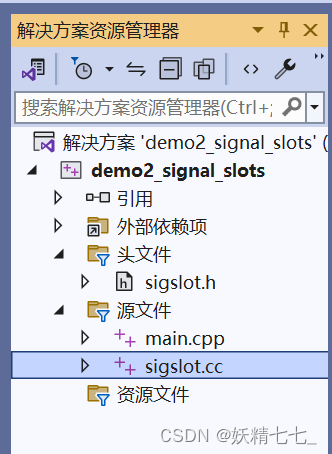
编写信号槽代码
#include<iostream>
#include "sigslot.h"
using namespace std;
using namespace sigslot;
class Window {
public:
signal0<>sig_LButtonClicked;
signal1<int>sig_paint;
};
class WindowHandler :public has_slots<> {
public:
void onLButtonClicked() {
cout << "L Button clicked" << endl;
}
void onPaint(int value) {
cout << "value = " << value << endl;
}
};
int main() {
Window w;
WindowHandler handler;
w.sig_LButtonClicked.connect(&handler, &WindowHandler::onLButtonClicked);
w.sig_paint.connect(&handler, &WindowHandler::onPaint);
w.sig_LButtonClicked();
w.sig_paint(123);
return 0;
}
复盘
代码解析
#include<iostream> // 包含标准输入输出流库
#include "sigslot.h" // 包含sigslot信号槽库
using namespace std; // 使用标准命名空间
using namespace sigslot; // 使用sigslot命名空间
// 定义一个Window类
class Window {
public:
signal0<>sig_LButtonClicked; // 定义一个无参数的信号sig_LButtonClicked
signal1<int>sig_paint; // 定义一个带一个int参数的信号sig_paint
};
// 定义一个继承于has_slots<>的WindowHandler类
class WindowHandler :public has_slots<> {
public:
// 定义一个处理LButtonClicked信号的槽函数
void onLButtonClicked() {
cout << "L Button clicked" << endl; // 打印"L Button clicked"
}
// 定义一个处理paint信号的槽函数,带一个int类型参数
void onPaint(int value) {
cout << "value = " << value << endl; // 打印"value = "加上参数值
}
};
int main() {
Window w; // 创建一个Window对象w
WindowHandler handler; // 创建一个WindowHandler对象handler
// 连接w的sig_LButtonClicked信号到handler的onLButtonClicked槽函数
w.sig_LButtonClicked.connect(&handler, &WindowHandler::onLButtonClicked);
// 连接w的sig_paint信号到handler的onPaint槽函数
w.sig_paint.connect(&handler, &WindowHandler::onPaint);
// 触发sig_LButtonClicked信号,调用handler的onLButtonClicked槽函数
w.sig_LButtonClicked();
// 触发sig_paint信号并传递参数123,调用handler的onPaint槽函数
w.sig_paint(123);
return 0; // 返回0,表示程序正常结束
}
signal0<>sig_LButtonClicked; // 定义一个无参数的信号sig_LButtonClicked
signal1<int>sig_paint; // 定义一个带一个int参数的信号sig_paint
编写信号时,数据类型写在<>里面.
// 定义一个继承于has_slots<>的WindowHandler类
class WindowHandler :public has_slots<> {
public:
// 定义一个处理LButtonClicked信号的槽函数
void onLButtonClicked() {
cout << "L Button clicked" << endl; // 打印"L Button clicked"
}
// 定义一个处理paint信号的槽函数,带一个int类型参数
void onPaint(int value) {
cout << "value = " << value << endl; // 打印"value = "加上参数值
}
};
编写槽函数的时候,需要继承public has_slots<>这个类.
// 连接w的sig_LButtonClicked信号到handler的onLButtonClicked槽函数
w.sig_LButtonClicked.connect(&handler, &WindowHandler::onLButtonClicked);
// 连接w的sig_paint信号到handler的onPaint槽函数
w.sig_paint.connect(&handler, &WindowHandler::onPaint);
连接的规则是信号对象调用connect,连接接收信号者和槽函数.
结尾
最后,感谢您阅读我的文章,希望这些内容能够对您有所启发和帮助。如果您有任何问题或想要分享您的观点,请随时在评论区留言。
同时,不要忘记订阅我的博客以获取更多有趣的内容。在未来的文章中,我将继续探讨这个话题的不同方面,为您呈现更多深度和见解。
谢谢您的支持,期待与您在下一篇文章中再次相遇!

